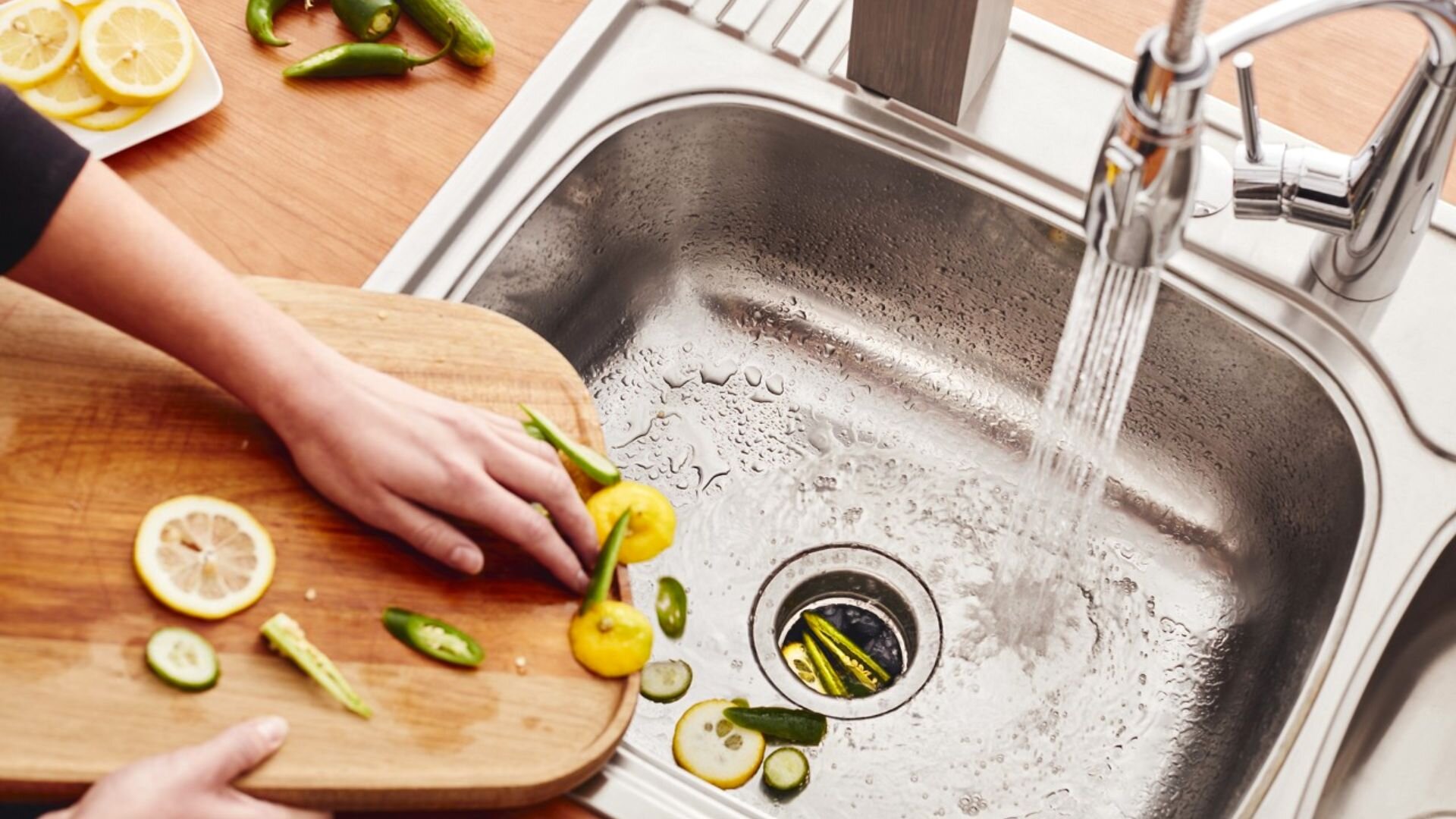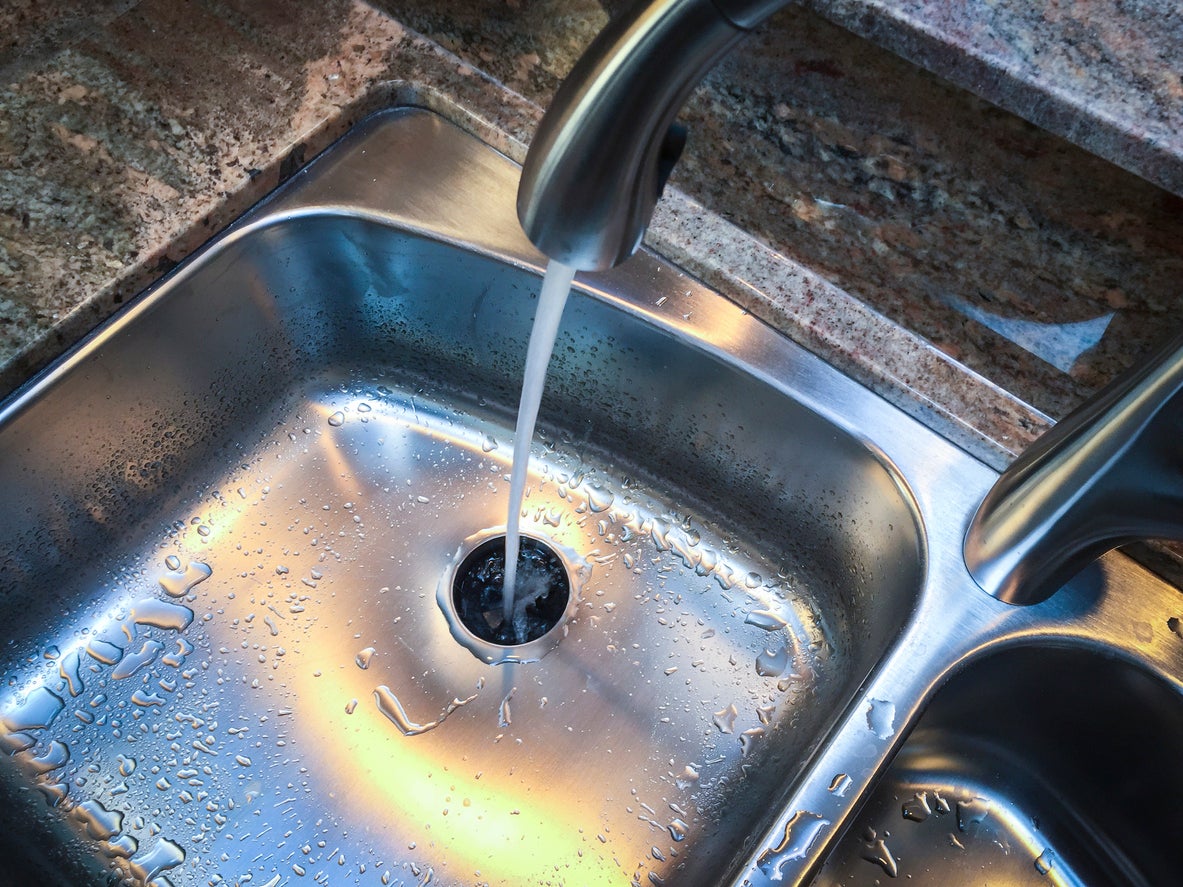Our Guide to Resolving a Leak in Your Garbage Disposal
Our Guide to Resolving a Leak in Your Garbage Disposal
Blog Article
We have found this article about How to fix a pretty consistent leak from my garbage disposal directly below on the internet and concluded it made sense to relate it with you on my blog.

Waste disposal unit are important cooking area appliances that assist in dealing with food waste efficiently. However, a dripping waste disposal unit can be an aggravating and messy trouble to manage. Thankfully, many leakages can be fixed quickly with a few basic actions. In this post, we will certainly review exactly how to deal with a dripping waste disposal unit properly.
Intro
Waste disposal unit are set up under kitchen sinks and are created to shred food waste into smaller items, allowing it to go through the pipes system easily. While these tools are generally dependable, leaks can occur with time due to damage, loosened links, or damages to the system.
Typical Root Causes Of Leaks in Garbage Disposals
Worn Seals and Gaskets
Seals and gaskets play a critical role in stopping water from leaking out of the garbage disposal. Over time, these parts can deteriorate, resulting in leaks around the disposal unit.
Loose Connections
The links between the waste disposal unit and the plumbing system can become loose in time, creating water to leak out during procedure.
Splits or Holes in the Disposal System
Physical damages to the garbage disposal, such as cracks or holes in the housing, can also result in leaks.
Recognizing the Source of the Leak
Before attempting to deal with a dripping waste disposal unit, it is necessary to determine the resource of the leak. This can usually be done with aesthetic inspection or by carrying out simple tests.
Visual Assessment
Inspect the waste disposal unit system carefully for any kind of signs of water leakage. Pay very close attention to areas around seals, gaskets, and link factors.
Checking for Leakages
One way to examine for leaks is by running water through the disposal device and checking for any visible indications of leakage.
Tools and Products Needed for Fixing a Leaking Garbage Disposal
Before starting the repair work procedure, gather the essential devices and materials, including a screwdriver, adjustable wrench, plumbing's putty, replacement seals or gaskets, and epoxy or patching product for read more repairing fractures or holes.
Step-by-Step Overview to Dealing With a Dripping Garbage Disposal
Switch off the Power
Before attempting any kind of repair services, guarantee that the power to the waste disposal unit unit is switched off to prevent the threat of electric shock.
Locate the Leak
Recognize the specific location of the leakage and determine the cause.
Tighten up Links
Utilize a wrench to tighten up any type of loose links in between the disposal system and the pipes system.
Replace Seals or Gaskets
If the leak is because of worn seals or gaskets, get rid of the old elements and change them with new ones.
Patching Fractures or Openings
For cracks or holes in the disposal system, use epoxy or an appropriate patching product to seal the broken area.
Testing the Waste Disposal Unit After Repair Service
As soon as the repair work is full, evaluate the waste disposal unit by running water with it to guarantee that the leak has been dealt with.
Preventive Maintenance Tips to Avoid Future Leakages
To stop future leakages, it is vital to carry out regular maintenance on your waste disposal unit. This includes maintaining it tidy, preventing placing non-food items or difficult objects down the disposal, and periodically checking for leakages or various other problems.
Conclusion
To conclude, taking care of a dripping waste disposal unit is a relatively simple procedure that can be finished with fundamental tools and materials. By complying with the steps laid out in this write-up and exercising preventive upkeep, you can keep your garbage disposal in good working problem and prevent expensive repair services in the future.
HERE’S HOW TO FIX YOUR GARBAGE DISPOSAL
WHAT TO DO IF SOMETHING IS STUCK IN YOUR GARBAGE DISPOSAL
If the impeller won’t turn, there’s probably something stuck in the disposal. It could be a steak bone or peach pit, although plumbers report pulling all sorts of inappropriate objects out of disposals, such as bottle caps or aluminum foil. Make sure power to the disposal is off, and look inside to see if you can see the source of the jam.
Never stick your fingers in a disposal. Pull out anything you see with tongs or pliers.
If the disposal still won’t work, it may be time to call a plumber or consider buying a new disposal. GEM Plumbing & Heating is here for all of your garbage disposal needs.
WHAT TO DO IF YOUR GARBAGE DISPOSAL DRAIN IS CLOGGED
Take everything out from underneath your sink and put a bucket or other container under your disposal to catch any water that drains out. Disconnect your disposal from the power supply. If it’s plugged into a wall outlet, unplug it. If it’s hardwired into an electrical box, go to the electrical panel and turn off the breaker for the disposal. Pour ¼ cup of baking soda into the drain, followed by ½ cup of white vinegar. Give the solution a few minutes to fizz and do its work. Look into the disposal with a flashlight to see if you can see an object that might be causing the clog. If you see it, remove it using tongs or pliers. MORE TIPS ON DEALING WITH A CLOGGED GARBAGE DISPOSAL
Never use drain cleaner in a garbage disposal. It can damage the plastic parts inside the disposal. You can also be splashed with the caustic liquid while working to clear the clog. Beware! Never stick your fingers into a garbage disposal. Trust us — not a good idea. In many instances, your dishwasher drains through your garbage disposal. This allows the disposal to grind any large food particles that may be drained out of your dishwasher. There are some jurisdictions, however, where the plumbing code prohibits such a connection. WHAT TO DO WHEN YOUR DISHWASHER DRAINS THROUGH THE DISPOSAL
Run some water in the sink so your plunger has at least a ½-inch of water to create a seal and plunge vigorously up and down several times. You may need to repeat this several times. Run hot water down the drain to clear any residue that remains.

We had been made aware of that editorial on Why Is from an associate on a different web blog. Are you aware of another person who is interested in the niche? Take a moment to promote it. Many thanks for taking the time to read it.
Call Today Report this page